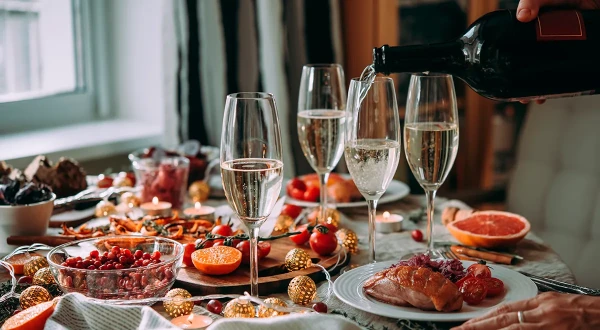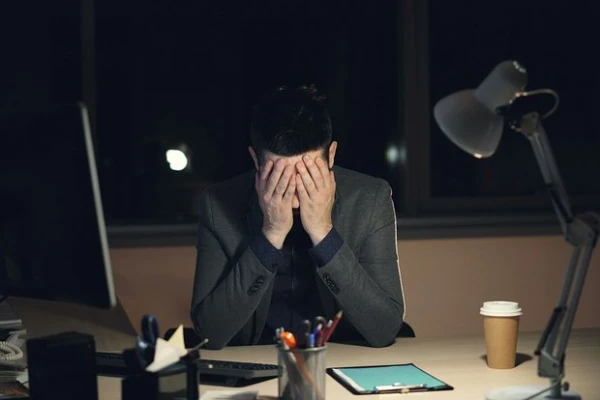
In the modern world, a woman is most often perceived not as a person, but as a bearer of age. At every stage of our lives, there are invisible "templates": how we should look, feel, and act. What harm do these myths cause?
Don’t Pressure Me
From a neuropsychological perspective, stereotypes are fixed in neural networks as stable cognitive schemas, forming automatic reactions: "it’s too late at thirty," "at fifty I’m invisible." From a psychoanalytic standpoint, they trigger unconscious conflicts between the "self" and the internal image of the "ideal woman," which has been absorbed from family, culture, or media. When I work with women of different ages, I increasingly notice that their inner stories rarely align with the scenarios imposed by society. And the most painful aspect is not the years themselves, but the expectations attributed to those years. At twenty, you should shine and rapidly build a career. At thirty — start a family and have children. At forty — come to terms with changes and gradually "lower your standards." At fifty and older — as if you become invisible. And if you have also gone through a divorce and are raising a child, the pressure increases exponentially. But in my practice, I see the opposite: women of any age seek joy, meaning, love, and new paths. And they find them. I often hear: "It’s too late for me to start over," — but after a few months, the same woman suddenly says: "The grass is green, and I dream again." And this transformation — when the eyes begin to shine — is for me the main argument that age does not actually govern life. Only what we believe in governs.
Focus on Self-Care
Stop comparing yourself to others. Every woman has her own path. Psychotherapeutic work helps to see which beliefs came from family and culture, and which are your own. Notice your achievements. Write down what you have accomplished over the year, over the decade — and you will see how much you have gone through. This strengthens the sense of continuity and pride. Work with your body. Self-care is not a struggle against time, but an act of love. Physical activity, nutrition, detoxes, and sleep directly affect mood and the state of "I like myself." Limit toxic comments. Create a space where you are valued and supported. Allow yourself to dream. At any age. Dreams always give strength. Allow yourself joy. Dancing, walks, romances, new books, meetings with people — these are not "trivialities," but sources of inner energy.
Self-Flagellation as a Threat to Health
When stereotypes are repeated over and over, they turn into internal beliefs. A woman begins to believe that she is "late," "didn’t make it," "isn’t good enough." And she lives with constant anxiety: I’m not on time, I don’t measure up, I’m not enough. This eats away at her strength, prevents her from enjoying the moment, and building plans. I notice that anxiety often masquerades as external well-being. A woman smiles, jokes, works, but inside she constantly hears a background: "Something is wrong with me." Sometimes this manifests physically: headaches, insomnia, tension in the chest. In the language of psychophysiology, this is simply explained: the body has lived too long in a state of readiness for threat. The amygdala remains activated, and even when there is no danger, the body signals: "fight or flight." As a result, the ability to dream and plan calmly is lost.
On Divorced Women with "Baggage"
A special topic is women who are left alone with children. Many say that they feel as if they have lost the right to a new life: "I am now just a mom and must dedicate myself to my children." This is a very heavy feeling that breeds loneliness and sometimes leads to self-flagellation: "If I were better, everything would have turned out differently." But in reality, it is often these women who become examples of strength. They learn to rely on themselves, create new professions, build businesses, and discover talents they were unaware of. And most importantly — they begin to feel freedom: "I can choose what suits me, not what others expect." I see how after several years of pain, they suddenly start to smile sincerely and allow themselves new relationships, and this new chapter often turns out to be happier than the previous one. I remember one client who, at forty-five, raising two children, said: "I’m not even a woman anymore, I’m just a mechanism." A year later, she changed jobs, met someone from whom she felt respect and support, and for the first time in a long time admitted: "I’m happy." For me, this is an example that new stories are always possible.
At 30 and 60 — It’s Not Too Late
Every age brings its own challenges. At twenty, the comparison worries: "I’m not good enough." At thirty — the pressure of time: "It’s time." At forty — the fear of missing out. At fifty — the feeling of invisibility, as if all the world’s attention is directed at anyone but you. At sixty and beyond, the dominant thought is "there isn’t much time left to live." But it is precisely here that opportunities hide. Twenty is a time for experiments and trials. Thirty is a chance to separate your desires from others'. Forty is a moment of reevaluation, when you can change and choose. Fifty is a time to regain freedom and the right to joy. Sixty and beyond is wisdom and the ability to enjoy what truly matters. I know a woman who, at sixty-one, went to learn to play the piano and now gives small concerts for friends. Another, at sixty-four, began hitchhiking across Europe. And a third, at seventy, opened her own blog and gathers thousands of followers. These are not exceptions, but proof that life does not end — it simply changes rhythm and forms. It is very important to remember: age does not have to be a time of decline.
Yes, the body changes, but that does not make a woman "less." Yes, society may dictate its expectations, but each of us has the right to our own rhythm. The psyche lives where there is energy. When we allow ourselves to care for our bodies, get enough sleep, eat properly, rest without guilt, and find joy in simple things — energy for life appears. Then we begin to dream again. And this is the main indicator of physical and mental health. Thoughts about the future nourish. A woman who plans a trip, education, or even a small project gets the same surge of energy as a teenager before an exam or a new romance. So don’t give up on plans just because you think you’re "too old." A woman’s age is not a chain of limitations, but a story. And the more personal decisions there are in this story, the brighter and richer it is. Life never ends at thirty, forty, or fifty. It continues and gives us a chance to write new chapters.













